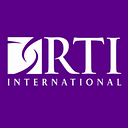Photo Essay: Sustainable economic growth in Somalia’s fisheries

Oceans play a significant role in everyday life. The Indian Ocean that contours Somalia is home to some of the richest fishing grounds in Africa, with vast potential for fisheries and coastal area development. At 3,300 kilometers (2,050 miles), Somalia boasts the longest coastline in continental Africa and diverse waters that are home to schools of yellowfin tuna, blue marlin, dolphin fish, sardines, and many more. Somalia has made great strides in its development over the last 5 years within the fisheries sector, with tremendous potential for successful expansion. However, to achieve this potential, the sector will need to overcome challenges such as outdated infrastructure and technology as well as inadequate quality standards. Given that Somali waters are uniquely untapped, the country has the opportunity to plan the use and management of resources to protect the environment and maintain the rich diversity of species.
Through the Somalia Growth, Enterprise, Employment, and Livelihoods (GEEL) Program, funded by USAID and implemented by RTI, we are working to promote sustainable, environmentally sound growth in the fisheries industry through balanced infrastructure and capacity development, fisheries management, and preservation of the marine environment. Here are a few examples.
Building Capacity

Decades of civil war restricted people from staying abreast of industry skills and technologies, which has created a demand for training that has not been met. For example, gill nets are a low-cost technology that can make fish harvesting more accessible to women. They also generally have a low environmental impact as they don’t touch the seabed and preserve younger or undersized fish, ensuring the continued presence of the target species in the waters. Through GEEL, we are working with women from fishing cooperatives in Mogadishu to build the skills to create and repair gill nets. With the capacity to produce fishing nets from scratch, and repair damaged ones, the women will earn additional income from the fisherfolk in their region and contribute to the growth of the Somali fishing industry.
Eco-Friendly Fishing

Although Somali waters are rich in diversity, recent studies show that some fish, like sea cucumber and lobster, are being harvested at an unsustainable level while fish such as sardines and anchovies are not. For sustainable development to be successful in Somalia, the country will need a more balanced approach to harvesting that decreases the catch of over-exploited fish and increases the catch of species that could sustain higher levels of fishing in the future. GEEL provides support to companies in the sector to ensure fish stock sustainability and management of marine resources through training on environmentally sound fishing methods. In Gara’ad, for example, GEEL is implementing a biodiversity project focused on sustainable lobster fishing to replenish the once abundant species and create a balanced environment for them to thrive.
Developing the Private Sector

As the livelihoods potential of the fisheries sector is realized, Somali waters will continue to gain importance as part of the country’s economy. The Federal Government of Somalia has acknowledged the importance of investment in private sector development and is undertaking an ambitious reform program that will streamline the regulatory environment and investment process. These reforms can usher in a new era of stability to establish the systems necessary to encourage foreign investment in Somalia’s fisheries, formalize the local private sector, and put in place the necessary governmental checks and balances required to protect ocean resources. GEEL works with private companies to collect fisheries management data to inform fishing practices and contribute to the growing national fisheries database in Somalia, essential in monitoring stock levels and assessing environmental impact.
“We’re optimistic about the sustainability of fisheries in Somalia and we’re taking positive steps to balance the use and the protection of Somali waters,” says Richard Mounsey, Fisheries Manager for the GEEL project.
Improving Infrastructure

A lack of infrastructure, especially ice, freezing, and cold storage facilities, has been a significant constraint to growth in the Somali fisheries sector. Proper fish handling and storage also contributes to the balance between use and preservation of the oceans. Investment in cold storage infrastructure is necessary to preserve the quality of fish, reduce waste, and increase the capacity of companies to store fish in bulk. To help address this, GEEL is rehabilitating older cold storage facilities and training a young crop of technicians to maintain those facilities over the long run.
So far, GEEL has repaired 17 cold storage machines, resulting in an approximately 50 percent reduction in fish that go to waste.
Connecting to the Global Market

Market expansion for fish products from Somalia shows significant opportunity for sustainable growth and development for domestic and export clients. The Somali fishing and seafood industries could obtain a substantially higher economic benefit through sustainable processing of fish products. However, getting products ready to meet food transportation standards remains a challenge. GEEL works with companies that collect fisheries management data to inform their fishing and processing practices, encouraging companies to review their supply chain and prioritize sustainable practices. By providing training on Hazard Analysis and Critical Control Points (HACCP) and cold storage installation, GEEL is working with fishing companies to streamline the fish processing systems to meet global hygiene standards and reduce waste of fish.
To learn more about RTI’s work in environment, visit: https://www.rti.org/practice-area/environment-and-water-resilience
